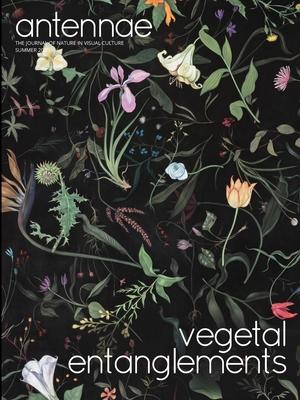Plants have been an enigmatic and inexhaustible source of representational reinvention throughout the history of art. But they have more often been relegated to the background of our imaginative prowess. They have been allowed to play sidekick roles but very rarely, if ever, plants have been given the opportunity to take center stage.
The recent emergence of the vegetal world in contemporary art is the symptom of a new cultural shift. No longer just interested in their aesthetic beauty, artists now look at plant-agency and intelligence, or focus on new considerations of plants as key players in historical, biological, and ecological contexts. As humanity begins to grapple with the urgency imposed by climate change, reconsidering human/plant relationships can reveal the importance of ecological interconnectedness and lead to a more nuanced consideration of the variety of living organisms and ecosystems with which we share the planet.
